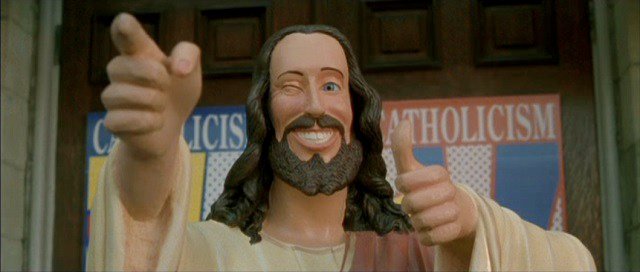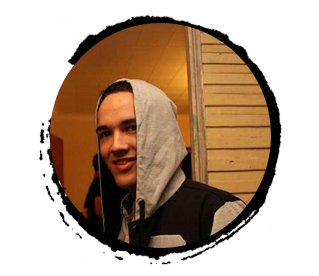Eschatology - What if the End of Days means something different
In religious cultures, prophets have long philosophized the End of Days, depicting destructive judgement upon mankind.
What if the End they were depicting however, was wrong? What if the End was actually something much simpler?
Eschatology; The part of theology concerned with death, judgement, and the final destiny of the soul and of humankind.
-The Oxford English Dictionary
"The End time is near!"
At least once in our lives we've heard this expression, usually being expressed by someone or something being ostracized in society. It's an expression that is equated with being crazy. In books, television, and theatre, mentally unstable characters are often dictating these exact words or something similar like, "Judgement is upon us", or, "Darkness has come!"
To identify as one of these people is ludicrous in modern society. We are a logical and rational thinking society which derives knowledge from scientific scrutiny. So why then is it that our culture still ponders over the mundane and vague idea that one day the world shall end?
Well, we discuss hypothetical situations to determine a hypothetical solution for if anything imagined were to occur, right? For if the world were to end tomorrow, we'd like to know how we could avoid such an untimely event. Survival after all is basic instinct, and through our study of the universe, we've realized just how fragile our place among the stars really is. But, any thought beyond that, of a scientific perspective, is mystic, and is without a doubt guided by our faith in the unknown.

Hypothetically speaking
Prophetic characters within religion each have their own specific dogmas when it comes to eschatology.
In Abrahamic religions, the idea is the same: A time of great tribulation will fall upon the people of Earth, of which a new Messiah will save us, and a Utopian society will be formed. The scenarios depict the same theme of transformation and rebirth.
In non-Abrahamic religions, they predict more cyclical themes. Hinduism suggests that the end will be brought about by Kalki, the tenth incarnation of Vishnu, after which the cycle of life will start again and we will once again be governed by Gods. Norse mythology predicted the time of Ragnarok, of which the Gods of good and evil battle, ending in the destruction of the universe, of which two humans survive to repopulate a new Earth. Buddhism suggests that the world shall be engulfed by a vast inferno as the seven suns consequently appear in the sky.

In Taoism and Zoroastrianism, the theme is somewhat less absolute. Taoism believes that a Messianic figure will balance good and evil in a time of upheaval and chaos. Zoroastrianism believes that we are all Messianic figures, in that our salvation lies within our own deeds and as such a day will come where the world will become perfect and whole.
No matter which dogma you study, the general idea remains the same, that "in a time of great chaos, we shall be saved or be destroyed". However, there is no consensus between these religions. They each believe that their theory is the one true revelation. But what if they were all right, and at the same time, all wrong?
Reality check
Cosmologists have been predicting a factual end to the world ever since the Big Bang theory was accepted among peers. Even though it's just a theory, scientists have studied the universe in order to determine exactly how and when the universe may explode, implode, or rip.
The reality of these theories is that they, like religious doctrines, are only hypothetical theories. They do involve the study of space and time to determine the fate of the universe, but there is no actual way to determine what would come next should any one of these theories literally come to fruition. After all, you can't know something until you see it.
So, let’s take a step back. Instead of trying to predict when and how the world might end, why don't we study how the world is, in this moment, and how that relates to these different theories.
Rationalizing eschatology within the Present
It doesn't take a scientist to understand the turmoil we see in our world. Perpetual war, poverty, and over consumption are plaguing our beautiful home. You can smirk at that statement all you like, but we all know it's the truth. Of course, the world has always had these problems, and if anything, the world is better off than it has ever been before, so why bring it up now?

As Society progresses, at the end of each age we tend to solve, in part, each of these problems. If we were to go back 100,000 years, to the beginning of human civilization, and watch ourselves progress since then, what we would see is a journey of perfection. The world's biggest problems would've been there at the beginning and would've been worse than today, in that moment.
We, as an intelligent species, have spent our entire history perfecting each and every aspect of our lives; from the way we behave, to the way that we learn. If ever we were to experience true chaos, it would have been in the beginning, when we had to violently fight to survive instead of constructively solving a problem without any need for said violence.
Understanding that human history is within itself its own tribulation, helps us to understand exactly what reaching the End means.
So, what does the End of Days mean?
As we transform throughout the ages, as we learn new things, we become more and more attuned to our purpose. We begin to understand exactly what this journey has all been for and where it leads. We observe nature, both throughout the cosmos and within atoms, and find ourselves coming to one conclusion. Existence is one organism, and our place inside that organism is determined by our actions, those actions therefore determine what happens next.
The end of humanities own tribulation is not one of destruction. The end of humanities tribulation is the beginning of humanities perfection. We believe that perfection is not possible, and from where I stand, this is true. We have not yet accomplished perfection. No single man or woman can say that they have. That is why we are not near the end of our story, and that we have a long way to go.
If the world were to end tomorrow, we probably wouldn't see it coming. If everything were to be destroyed, we wouldn't live to see it. What we can see though, is what's here, in front of us. What we've done, what we're doing, and what we can do. There is no reason for any of us to believe that what is now, is all that there is, because there's so much more yet to be discovered.
The End of frivolous dispute is near, and perfection will follow.

Born in New Zealand and resides in Australia, Thomas writes about many different subjects, mostly about those that affect him at the time. He likes to philosophize about each subject and does the same in his music. Addicted to knowledge though no scholar, Thomas tries to be original & true in his quest to better himself.


Nice discussion here. :)
Thanks @justtryme90. I hope you understood the message I am trying to convey.
This post has been ranked within the top 50 most undervalued posts in the first half of Jan 14. We estimate that this post is undervalued by $4.52 as compared to a scenario in which every voter had an equal say.
See the full rankings and details in The Daily Tribune: Jan 14 - Part I. You can also read about some of our methodology, data analysis and technical details in our initial post.
If you are the author and would prefer not to receive these comments, simply reply "Stop" to this comment.